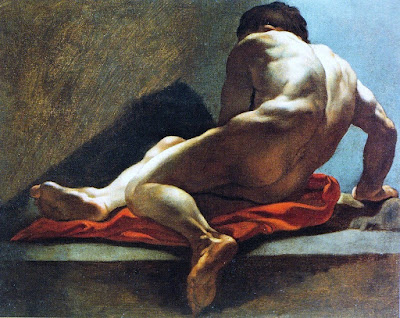 |
| Gianlorenzo Bernini Self Portrait ca. 1623 oil on canvas Galleria Borghese, Rome |
 |
| Gianlorenzo Bernini Self Portrait ca. 1625 drawing Ashmolean Museum, Oxford |
 |
| Gianlorenzo Bernini Self Portrait ca. 1625-30 oil on canvas Musée Fabre, Montpellier |
 |
| Gianlorenzo Bernini Self Portrait ca. 1638-40 oil on canvas Galleria Borghese, Rome |
 |
| Gianlorenzo Bernini Self Portrait ca. 1665-70 drawing Royal Collection, Windsor |
 |
| Gianlorenzo Bernini Portrait of Nicolas Poussin ca. 1628-29 oil on canvas, mounted on panel York City Art Gallery |
 |
| Gianlorenzo Bernini Portrait of a Man ca. 1630 drawing Royal Collection, Windsor |
 |
| Gianlorenzo Bernini Apostles Andrew and Thomas 1627 oil on canvas National Gallery, London |
 |
| Gianlorenzo Bernini David ca. 1624-25 oil on canvas Palazzo Barberini, Rome |
 |
| Gianlorenzo Bernini Portrait of Pope Clement IX ca. 1668-69 oil on canvas private collection |
 |
| Gianlorenzo Bernini St Sebastian ca. 1635-45 oil on canvas private collection |
 |
| Gianlorenzo Bernini Christ Mocked ca. 1630 oil on canvas private collection |
 |
| Gianlorenzo Bernini Académie ca. 1649-50 oil on canvas private collection |
 |
| Gianlorenzo Bernini Académie ca. 1618-24 drawing Princeton University Art Museum |
 |
| Gianlorenzo Bernini Half-Length Figure-Study from the Back ca. 1630 drawing Royal Collection, Windsor |
"Gianlorenzo Bernini, a child prodigy, continued to grow in artistic stature throughout his life and to work into extreme old age. Not an introspective or intellectual genius like his great predecessors Donatello, Leonardo and Michelangelo, he must be identified with those orthodox beliefs and aspirations of triumphant Catholicism and of secular absolutism for which he found such compelling visual embodiments. For this reason, his reputation – as he himself predicted – waned after his death, and has never been high in non-Catholic countries. . . . In an age of increasing doubt, he died affirming, in his art as, paradoxically for so accomplished a courtier, in his private life, the certainty of individual salvation to the point of mysticism."
– Erika Langmuir and Norbert Lynton, Yale Dictionary of Art and Artists (2000)